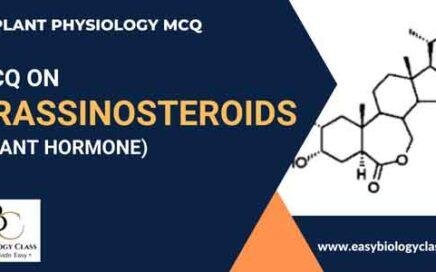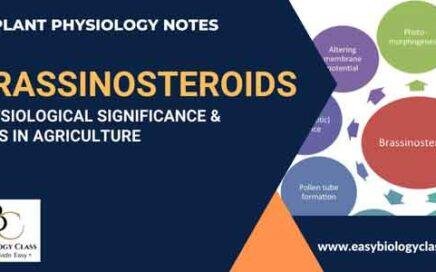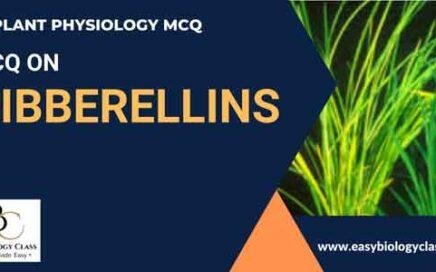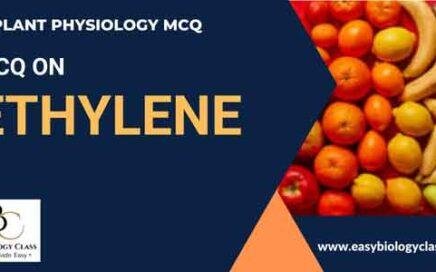
MCQ on Brassinosteroids (Plant Hormone)
Brassinosteroids are a class of plant hormones essential for growth and development. They regulate processes like cell elongation, division, and differentiation, and help plants respond to environmental stresses. These hormones are crucial for plant height, leaf development, and overall vitality. This is an MCQ on Brassinosteroids – Structure and Physiological […]




